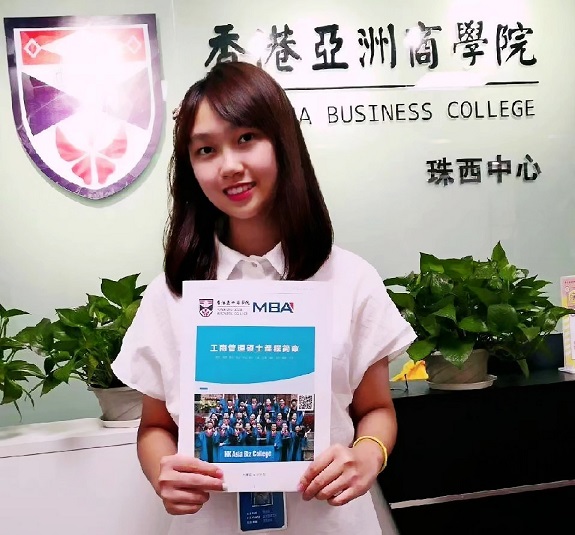Curriculum
The Core is completed by each MBA student. The curriculum consists of a forward-thinking academic program that develops comprehension and competence in financial risk, economics and change, innovation through sustainability, current legal implications, and product improvement and market analysis. Students apply business theories and practices across all functional areas of an organization. Many courses include teamwork among students in preparation for entering the corporate world, a skill sought by many organizations.
The main working language is Chinese, with simultaneous translation and printed bilingual materials provided for those taught by non-Chinese speaking faculty members.
Teaching methods include lectures, cases, computer simulations, group discussion, and seminars, with a strong emphasis on communication between students as well as between students and faculty.
At the conclusion of each class, the students will be asked to evaluate the faculty member’s performance to ensure the quality of teaching.
While the majority of the courses offered at the HK campus will be local, 2 to 3 weeks are set aside for field trips which include studying the local economy, visiting well-known local companies, and engaging in discussions with local business and government leaders. The purpose of these field trips is to provide solutions for the problems faced by the local economy and its businesses.
In addition to the course offerings, numerous industry-specific organizations and geography-specific alumni associations provide additional opportunities for exchanges and networking.

Core Courses
Our core courses are carefully designed to cover various aspects of general management and to build your professional knowledge base. You will be introduced to the foundation techniques required to become a future business leader.
Application of economic analysis in formulating business decisions, drawing upon the theoretical foundations of the concepts of demand, cost, production, profits, and competition, with special emphasis on case studies.
▓ Consumer Behaviour
This course is designed to provide students with the knowledge and understanding of the theories in Psychology, Sociology and Anthropology, which are essential to the study of consumer behaviour. The course involves discussion topics related to consumer decision models, psychological processes, and social and environmental forces that shape consumer behaviour.
▓ Management of Information Systems
Addresses the management of the information resource from a senior management viewpoint. Covers the use of information technology to achieve competitive advantage, information technology and the organization, managing information assets, managing outsourcing, information technology operations and management processes, and information technology as a business.
▓ Strategic Management
Basic exploration of organizations in their environments. The elementary tools of management, which include: organizational objectives, social responsibility and ethics, policies, plans, and decision making; the design of organizations and jobs; the production and technology aspects of organization; the elements of leadership, behavior, and communication; and the elements of control and performance evaluation.
▓ Project Management
Course covers concepts and issues important in effectively managing projects. Topics include project selection, project planning, negotiation, budgeting, scheduling, resource allocation, project control, project auditing, and project termination. Course covers concepts and issues important in effectively managing projects. Topics include project selection, project planning, negotiation, budgeting, scheduling, resource allocation, project control, project auditing, and project termination.
▓ Marketing
Survey of activities involved in marketing. Emphasis is on developing a managerial point of view in planning and evaluating marketing decisions of the firm. Analyzes decisions with respect to products, price, channel, and promotional variables and considers questions relating to cost efficiency, demand, social responsibility and regulations.
▓ Corporate Finance
Approaches to evaluating firm capital budgeting decisions including cost of capital and risk. Techniques for making investment decisions involving physical assets of non financial firms.
▓ Strategic Human resource Management
Emphasizes strategic perspective of modern human resource management theory and practice. Topics include human resource planning, staffing, training and development, compensation, performance appraisal, and labor and employee relations.
▓ Management of International Operations
Managerial implications of conducting business in foreign countries. Provides a framework for analyzing and dealing with the management of foreign and multinational organizations as influenced by cultural, political, and economic constraints.
▓ Accounting Analysis & Managerial Accounting
Accounting Analysis I: Introduction to useful concepts, purposes, problems, methodology, and analysis process of financial accounting, analysis of the basis methods about corporative financing strategy, investment strategy, cost budget and income distribution strategy. You will learn about corporative financing strategy-the means to realize financial goal and the embodiment of corporative policy, including long-term goal strategy and the proceeding plan instituted for realizing financial goal, which are designed for corporative financing distribution.Managerial Accounting II :Introduction to concepts, purposes, problems, methodology, and terminology of financial accounting.
▓ International Finance
Examines ways in which financial decision-making processes are altered by operation in a multinational environment. Includes the effects of devaluation expectations, foreign exchange and investment controls. Also, case study materials related to actual decisions by multinational firms.
▓ Production & Operations Management
Mainly introduce the design and control of systems for the use of raw materials, personnel, equipment and facilities in manufacturing products and providing services as well as how to apply Mathematical models to decisions in a manufacturing setting. This lesson makes students learn that with the coming of information age and information technology being widely used, production and operations management have moved from attaching importance to technology in machinery age to pay equal attention to personality and technology. This lesson makes students learn about the management idea as a whole and understand the essence of management.
Systematic study of behavioral problems in the complex organization. Analyzes the interaction of environmental and internal factors and their effects upon organizational behavior

Flexible Curriculum
We offer one of the most flexible MBA curriculums in Asia based on six career tracks. The curriculum is made up of 95 credits. Your academic knowledge will be complemented by professional development workshops that will give you an unparalleled edge. You will gain about a quarter of your credits from studying the required core courses, and the remaining credits through flexible core courses, elective classes, credit-bearing workshops and trainings.
Flexible cores
You can customize your MBA curriculum based on your background and interests through flexible core courses oriented toward your envisaged career.
Data Analysis
Global Macroeconomics
Management of Organization
Financial Modeling
Programming in Python or R
AI
and more…



 同學會基地
同學會基地
